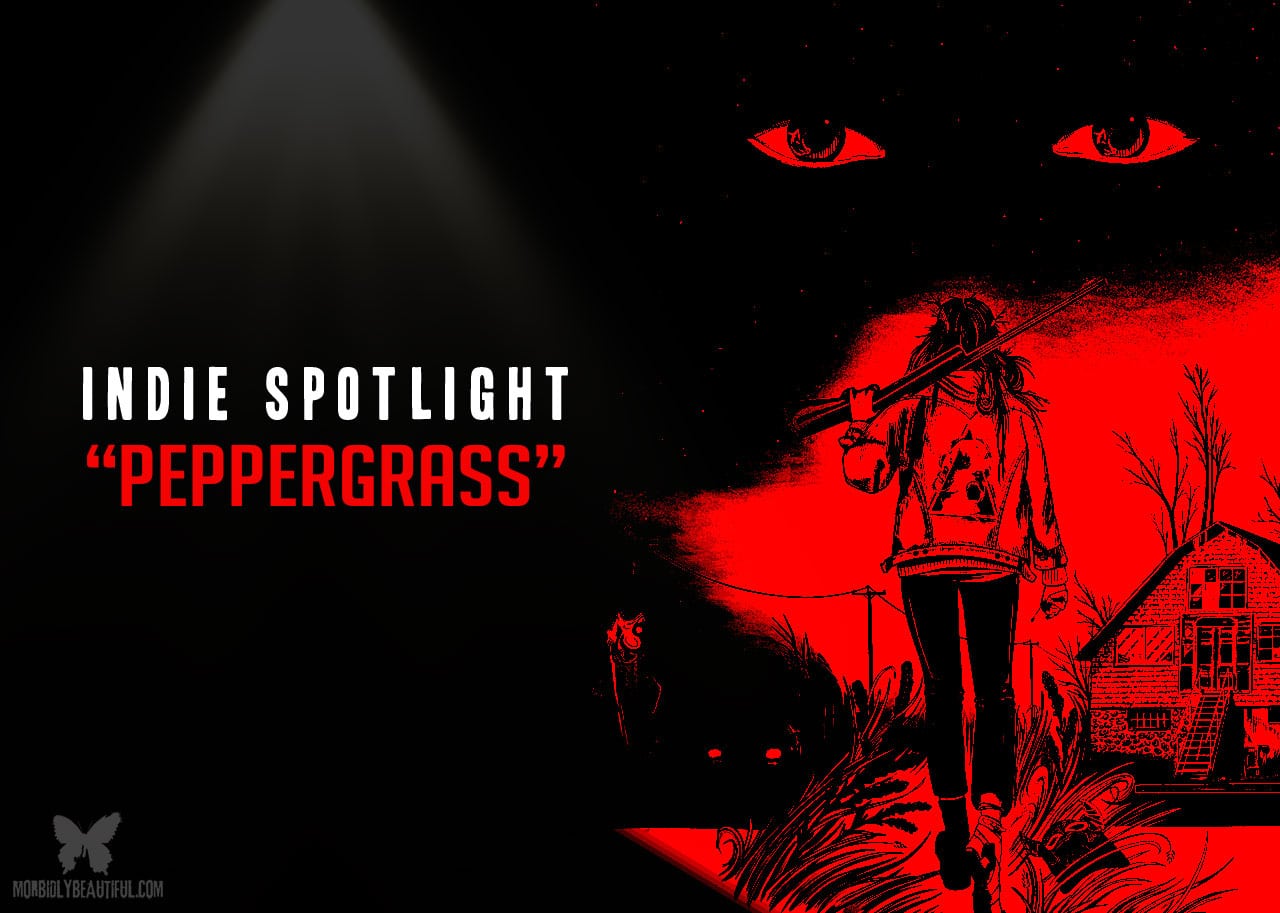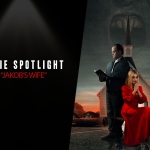An unusual and quiet thriller, “Peppergrass” won’t be for everyone, but its stunning scenery, ample tension, and potent message elevate it.
As the pandemic levels the restaurant industry, two truffle-seeking colleagues are punted mercilessly into the Treaty 9 backcountry of central Ontario, where Peppergrass offers a land-based and karmic tale of desperation and survival.
This one set into motion a slow-release dose of adrenaline that still lingers.
My respect for this film – specifically Chantelle Han’s performance (and no, not just because we share connections to Calgary) – increases the longer I reflect on it.
The plot is pretty basic. Eula (Han, who also co-directs) and Morris (Charles Boyland) need money to save Eula’s restaurant. They set out with a half-assed plan to steal truffles from a reclusive veteran, Reuben (Michael Copeman), who served with Eula’s grandfather and now lives in a remote area of central Ontario. Shit goes sideways, and we get to watch it all unfold.
Does it sound a little like Don’t Breathe? For sure. But don’t let the parallels fool you, as both films ultimately feel very different from one another.
The dangers and potential chaos Eula and Morris will encounter on the land where Reuben lives are outlined before arrival.
My wording here about the land is deliberate. It’s referred to as “Reuben’s land”; however, I feel writers Steven Garbas and Philip Irwin made conscious decisions about how to acknowledge and demonstrate how we, especially settlers, cannot own the land.
Through dialogue, they acknowledge that Reuben is on Treaty land. “Crown land” (a term that should be avoided). This means it is “owned” by the federal or provincial government, and First Nations peoples would have harvesting (hunting, fishing, and gathering) rights.
You might be thinking, “OK, why does this matter?” First, a little more context.
A local that Eula and Morris encounter early in their journey says, “The Swampy Cree respect him. The Ojibway respect him. Even the OPP [Ontario Provincial Police]. And I’m going to respect him.”
You could easily read this to mean they all fear Reuben. However, given the entirety of this story, I like to think that Reuben resorts to violence only when faced with those who want to disrespect and pillage the land without appreciation for “all my relations.” If the Swampy Cree and Ojibway respected him, he would have earned that. There would be a mutual appreciation for the land and each other.
Given Reuben’s light footprint on the land, we see he wasn’t exploiting its riches. He collected and sold truffles in moderation and as needed. Given those specific land terms, we can assume he welcomed his First Nation relations to harvest on the land. Reciprocity.
Both First Nations and Reuben appreciate their responsibilities as stewards of the land.
This is backed by the two distinctly different iterations of disrespect the film presents us with.
Morris demonstrates a stereotypical, assertive white settler mentality of entitlement. He demands the truffles without any effort at relationship-building. His punishment is dealt with with swiftness and immediacy.
Eula presents one of survival. She elicits more empathy both from Reuben and the land.
She could be seen as someone impacted by colonialism’s generational effects. While Canadian, she offers stories about her Korean roots and family and demonstrates some appreciation for a more relational and collectivist worldview. However, she must survive in North America, where systems are not built to embrace these ways of thinking.
Throughout PEPPERGRASS, I felt Eula waffle between fighting to survive and sinking into and welcoming defeat because she knows the colonial-influenced path isn’t the right (or natural) one.
As I mentioned already, Han’s performance absolutely made this film for me — specifically, the second act, which is just Eula and the backcountry together in silence. I laughed when the top Rotten Tomatoes audience review read, “The silent middle will be divisive.”
Some of you might disagree with me about the beauty and strength of this purposeful part of Peppergrass, where Eula gets her land-based lessons.
I appreciate that directors Garbas and Han chose to leave ample space for us to watch Eula’s freeze (both literally and figuratively), flight, and (predominantly) fight responses, wondering if she will survive or succumb to her unexpected teacher-slash-assailant: the central Ontario wilderness.
We see that Eula knows enough to survive; however, she makes missteps, as she lacks humility.
One of my favorite demonstrations of this is when Eula confuses fleabane with peppergrass, and we “find out more about the film’s title, which is all about the cynicism, duplicity, and error which govern the film as a whole.”
I feel bad about uttering a soft giggle, reflecting on this particular karmic moment (there are many in the film, including the climax). If Eula had come with better intentions, I could have seen her making an authentic connection with the land and with Reuben.
And that’s the message here: when you respect the land and live with it, you are sustained.
Reuben has lived on and with the land for years and harmoniously with his relations, who share or at least appreciate that mindset.
When you are selfish and individualistic, you are met with teachings. If those teachings are not met with humble curiosity and embraced, suffering will follow and may result in the ultimate karmic retribution.
Han’s palpable desperation to survive — against both natural and human threats, including herself — makes this a thriller worth rooting out.




















Follow Us!